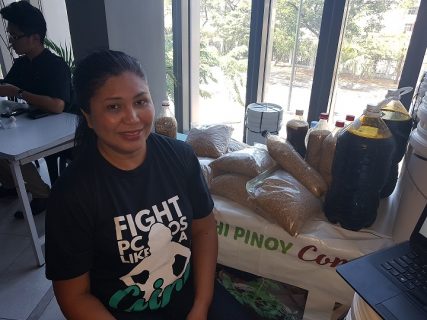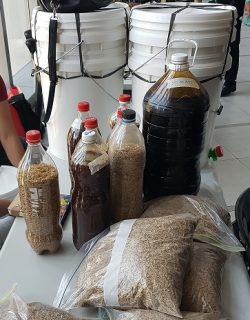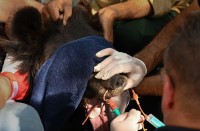by Emily Manuel
Contributor, Eagle News
(Eagle News) — Want to know what you can do with your kitchen scraps? Do you want to compost but live in the city and don’t have the time or space to do so?
Bokashi composting may just be the right solution for you.
Bokashi composting uses an anaerobic process to break down kitchen waste into fertilizer. Kitchen scraps, including meat and dairy products which are usually banned from traditional composting, are mixed with Bokashi bran, pressed into a tightly covered bucket, and left to ferment for at least two weeks.
Bokashi composting is ideal for urban dwellers because it requires very little space and doesn’t produce foul odors or attract pests. It requires minimal effort since it doesn’t need aerating like traditional composting.
– Bokashi journey –

Lanie Francisco is an advocate of Bokashi composting. Her journey began two years ago when she cultivated an organic farm in Nueva Ecija. Though the harvest was good, she realized that year after year, she will need to replace the organic fertilizers. Looking for a cost-effective solution, she tried vermiculture, but realized she was “scared of worms.”
Then someone suggested Bokashi. Using only the internet, she self-taught.
The challenge was to source the bran, which was usually imported and expensive. She decided to produce the bran herself using rice husk or “ipa”, usually discarded during the milling process. She also repurposed powdered sugar containers for her buckets.
The solution not only brought the price down but also helped farm workers find an alternative source of income.
– “Bokashi as a daily routine” –

Lanie plans to target mid to low income families and encourage them to compost. Her vision is “for every household to do Bokashi as a daily routine”. This is why she doesn’t hesitate to share her knowledge and holds regular seminars, despite holding down a regular job. She also sells the Bokashi starter kit at a minimal price.
She believes that waste segregation is not the final solution to the city’s garbage problem because food waste, in particular, are still being thrown using plastic bags.
She wants to find a way to collect the Bokashi compost from urban areas and distribute it back to the farms. She also wants to encourage people to start growing their own food.
Perlita Malic, Taguig City, attended one of Lanie’s seminars. She learned what she can do with household waste and plans to use the Bokashi compost fertilizer for her garden.
(For information on how you can start Bokashi composting, visit Lanie’s facebook page @Lanie Bokashi.)







